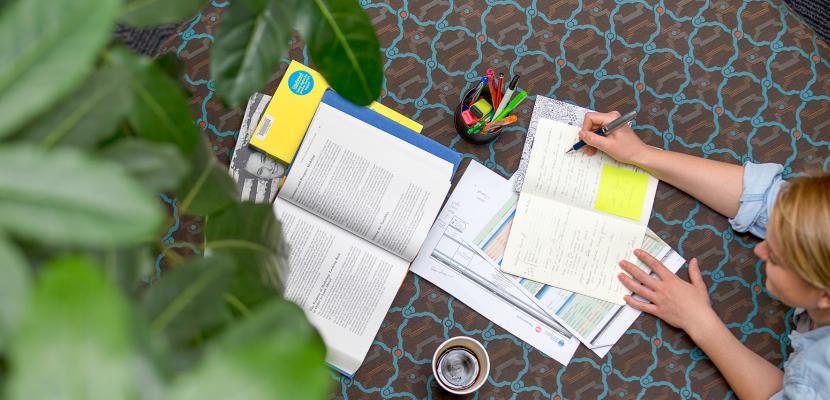
Welcome to Bond University! First, congratulations on your offer to study at Bond!
As you enter the next stage of your education, you may feel like you have a good set of study strategies, but remember, sometimes you need to adapt and refine what you already know, as what worked previously may not work in a new situation. School would have provided you with a good educational foundation, but there are a few key differences between high school and university studies.
First up, let's talk writing
Most of the writing you do at high school is aimed at enabling you to develop creativity and express your ideas and opinions. The goal is generally to interest / entertain the audience. In contrast, academic style writing is much more factual and evidence based. Academic writing is objective, rather than subjective, and rarely descriptive. Most university assignments are things like argumentative or analytical essays, reports, literature reviews and so on.
Oops, something went wrong.

So here are a few tips to change up your writing style
1. Avoid personal language
Academic writing is formal and objective, so don’t use personal phrases and pronouns like “I” “We” “You”, unless you’re being asked to write a reflection (which is a much more personal style of writing). The art of academic writing is to make your opinion implicit in the language you use and the evidence you provide. For example, rather than saying “I believe poverty can be eradicated”, you would just say directly, “poverty can be eradicated through….”.
2. Research widely
Learn to use the library databases and tools to research books and journal articles, information that has been written by ‘experts’ in the field. This will provide the evidence to back up your arguments.
3. Don’t use rhetorical questions
Your lecturer has asked you a question – discuss, analyse, report or whatever is required, but don’t write questions!
4. Forget about the linking sentence at the end of a paragraph
In school you are taught to finish off with a summary sentence. Most of the time that is not necessary. What is more important is having a good topic sentence at the beginning of each paragraph that signposts your argument.
For more tips on academic writing style, take a look at the Academic Skills Centre iLearn page.
The next area to think about is study skills
At school and home, you probably found there was always a teacher or a parent chasing you up to get your work done on time. Lessons were scheduled, and you just had to turn up every day and do your homework. At uni, you may only have 4 lectures and 4 tutorials a week. Suddenly, you are faced with the whole time management situation, to say nothing of all the distractions that “freedom” brings with it. You also need to figure out how to navigate your way around iLearn – this is where all the information and materials related to your subjects are located.
Here are a few tips to help you manage all this:
1. Get yourself organised right from the beginning.
Find out what is expected in your course (assignments, exams etc.) and when.
2. Pick up a Semester Planner from the Academic Skills Centre.
3. Make a weekly plan of how you will spend your time
Schedule time for lecture preparation, lecture review, weekly summaries, and assignment preparation.
4. Attend the Study Strategies Workshop in week 1 and make an appointment to talk to a Learning Advisor at the Academic Skills Centre
You may find we are your best friend in semester 1 of your studies!

Let's not forget the personal stuff
At school, you might have been one of the top performers; the big fish in a small sea! Suddenly, you find yourself in a totally new, unfamiliar environment where there are lots of other big fish and a vast ocean of university culture to swim in! It can be challenging to find your way around in this new environment, both physically and psychologically.
You may find you experience a lot of pressure, both external from the quantity of work involved and also internal, from your own desire to ‘be the best’. There’s also a new way of working, different expectations, different types of assignment that you may not be familiar with, a different expectation of how you should behave, and let’s face it, freedom from the parents! This can bring a lot of uncertainty, maybe homesickness, and sometimes, a loss of confidence.
If you find you’re in any of these situations, Bond has lots of people who can help you.
The Academic Skills Centre can help you with:
- Academic skills
- Strategies for effective study
- Different writing styles and genres
- Time management
- Feedback on your writing
- Maths
Our qualified psychologists and counsellors can help you out if you’re feeling lonely, emotional or homesick.
Your lecturer or tutor is the person to talk to if you’re struggling with the content of your lectures - they all have consultation times and love to help you succeed.
Good luck with your first semester at Bond!
The Academic Skills Centre offers personalised support to help you with your studies. From one-on-one sessions to small group workshops and seminars, The team is available for both domestic and international students at all study levels. Find out more.